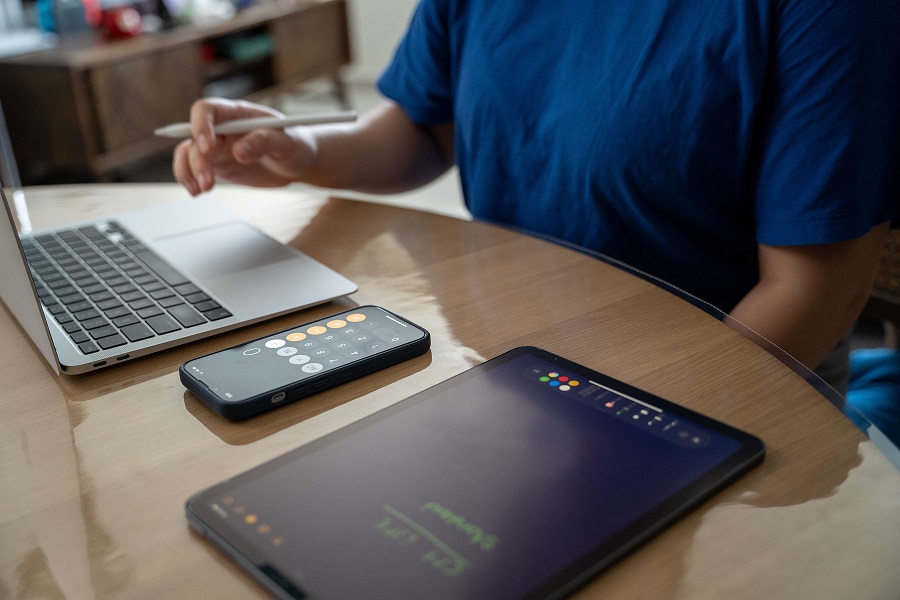1 Dec 2023
SOURCE: CPF Board

You never know when you will need an emergency fund. It's like bringing an umbrella out on a perfectly sunny day. You might not need it now, but you will be more than grateful to have one when the weather changes for the worse.
Like how an umbrella can shield you from the elements, an emergency fund can protect you from unexpected financial setbacks due to a job loss or a medical emergency. This makes it important to have an emergency fund as part of your basic financial security plan.
Read on to learn more about an emergency fund and useful tips to build one.
What should an emergency fund be used for?

Just like how the weather can turn from bright and sunny to dark and gloomy in a matter of minutes, your financial situation can also change quickly. Here’s what your emergency fund should be used for:
1. Unexpected emergencies
An emergency fund should only be used for unexpected financial expenses that you cannot afford to cover with your regular income, such as job loss, medical emergencies, or home repairs. It is not meant for planned expenses, such as holidays or branded goods.
By saving your emergency fund for real emergencies, you can be assured that it is there when you need it most.
2. Avoiding bad types of debt
While debt can come in all shapes and sizes, it can be largely categorised as good or bad debt. A housing mortgage is often considered as good debt due to its reasonable interest rates and because it helps in acquiring an asset that often appreciates in value.
This differs from credit card debt, which is typically seen as a bad debt because of its high interest rates and lack of value in growing your wealth.
An emergency fund can help you out in bad debt situations and free up your finances, preventing you from spiralling into a vicious financial cycle.
3. Peace of mind during emergencies
A solid financial cushion can reduce anxiety and stress during difficult times by giving you the freedom to make choices without feeling pressured.
For example, with an emergency fund, you do not need to settle for an unattractive job offer or sell your assets at a loss to pay your essential bills. This gives you more time and space to make the best decisions for you and your family, even in difficult circumstances.
Quick tips for building an emergency fund
1. Set a goal of at least three to six months’ of expenses
The general rule is to save at least three to six months' worth of expenses for your emergency fund. This is just a guide amount and a good starting point for most individuals.
At the same time, you also must consider other factors like the number of dependents (children, elderly parents, and siblings) that are reliant on your income.
Saving three to six months' worth of expenses may seem daunting - but is a necessary amount as it could take that long to find a new job you want. Your emergency fund can also provide a financial cushion, giving you the option to take a longer stress-relieving timeout from work if needed.
2. Make small regular contributions

If you are just starting to save for an emergency fund, take small steps by building a “mini” emergency fund first. Even a small contribution each month can gradually add to a big amount over time!
The key is to set a realistic goal that you will eventually meet. Consistently saving small amounts is more sustainable than trying to save a large sum all at once and quitting before reaching your target.
3. Let your emergency fund grow steadily while remaining accessible
Your emergency fund should be readily available for quick access in emergencies. Assets like gold or fixed deposits, which take time to convert to cash, are not suitable for this purpose.
Instead, your emergency fund should be stored in liquid and easy-to-withdraw financial instruments, such as a high-yield savings account that offers a higher interest rate than regular savings accounts or Singapore Savings Bonds (SSBs).
SSBs are guaranteed by the Singapore Government and generate steady returns the longer you hold them for, up to a maximum of 10 years. You can exit your investment in any given month without penalty, making it ideal for an emergency fund.
4. Separate your emergency funds from your other accounts

Create a separate account for your emergency fund, away from your regular spending and income accounts. This prevents you from being tempted to use your emergency fund for luxury purchases or accidentally using it for daily expenses.
A dedicated emergency fund account also makes it easier to monitor the growth of your emergency savings and determine how close you are to your target.
5. Regularly review how much you need in your emergency fund
Your financial needs can change due to life events like marriage, having children, or buying a home. External factors like inflation can also reduce the value of your emergency fund.
This makes it important to review and adjust your emergency fund regularly to ensure that it continues to meet your evolving needs.
An emergency fund that is ready for you in rain and shine
An emergency fund is a key part of your financial planning and can provide you with much needed financial relief in unexpected circumstances. Keep these five tips in mind when planning for your emergency fund and you should be all set in no time.
For more resources on financial planning, check out our Money Matters series which covers useful topics on investments, savings, and insurance!
The information provided in this article is accurate as of the date of publication.



